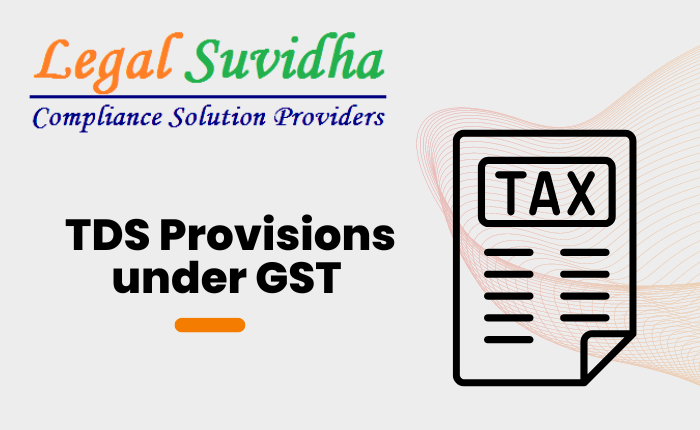Tax Deducted at Source is a way for the government to collect taxes. It works like this: when someone pays for goods or services, a certain percentage of that payment is taken as tax and given to the government. This tax money is an important part of the government’s income. In the context of the Goods and Services Tax (GST), the rules for TDS are laid out in Section 51 of the Central GST Act and CGST Rule 66. These rules started to apply from October 1, 2018. Let’s dive deeper into how Tax Deducted at Source under GST works.
Who Needs to Deduct TDS:
According to government notifications, certain organizations or bodies are responsible for deducting TDS. These include:
1. Authorities, boards, or organizations set up by the government.
2. Societies registered under the Societies Registration Act, of 1860, and established by the Central or State Government or a Local Authority.
3. Local Authorities.
4. Government Agencies.
5. Departments or parts of the Central or State Government, as specified in a notification for the Ministry of Defence.
6. Public sector companies (PSUs).
Who Doesn’t Need to Deduct TDS:
TDS rules don’t apply in some cases. These include:
1. Certain authorities under the Ministry of Defence, except those listed in a specific document.
2. When one government-owned company pays another government-owned company.
3. When the transaction involves certain specified parties.
4. When the payment is made for a tax invoice issued before October 1, 2018.
5. When the recipient of the goods or services is an unregistered supplier.
When TDS is Applied:
TDS is deducted at a rate of 2% on payments for taxable goods and/or services if the total value of that payment under a single contract is more than Rs. 2,50,000. It’s important to note that TDS is not deducted on goods or services that are exempt from tax or have a nil tax rate. Also, if a single contract includes both taxable and exempt items but the taxable part is below Rs. 2,50,000, then TDS isn’t applied.
For example, if a company called ABC Ltd. sells printed materials worth Rs. 2,10,000 along with books worth Rs. 1,00,000 to a government department and the total bill is Rs. 3,10,000 plus GST, no TDS is deducted because the value of taxable goods is less than Rs. 2,50,000, and the books are exempt.
When TDS is Not Deducted:
TDS is not deducted in certain situations:
1. When the supplier’s location is in a different state from the recipient’s location.
2. For transactions listed in Schedule III of the CGST/SGST Acts, regardless of their value.
3. When the payment is related to a tax invoice issued before October 1, 2018.
4. When the recipient has to pay tax through reverse charge.
5. When the payment is made to an unregistered supplier.
TDS Rates:
The TDS rate is either 1% CGST plus 1% SGST or 2% IGST on the payment made to the supplier for taxable goods and/or services. This tax is only calculated on the actual value of the goods or services, not on the GST components like CGST, SGST, UTGST, IGST, and Cess.
How Suppliers Claim TDS Credit:
Suppliers can claim TDS credit by following these steps:
1. Log in to the GST Portal at www.gst.gov.in.
2. Access the GST Portal using their login details.
3. Go to Services > Returns > TDS and TCS credit received.
4. Choose “Prepare Online” and then select “TDS Credit Received.”
5. They can see the available credit and will receive a message confirming the acceptance.
Even businesses that fall under the composition scheme can use this credit to reduce their tax liability because it’s not considered an input tax credit.
When TDS Certificates are Issued:
TDS certificates, in the form of GSTR – 7A, must be given to the deductee within 5 days of depositing the TDS with the government. Deductees can download these certificates by following these steps:
1. Visit the www.gst.gov.in URL.
2. Log in to the GST Portal with their login details.
3. Go to Services > User Services > View/Download Certificates.
Refunds for Overpayment or Errors:
If someone pays too much TDS, they can ask for a refund. However, only the deductor or the deductee can request a refund, not both, as per Section 54 of the CGST Act. It’s important to note that once the deducted amount is credited to the deductee’s electronic cash ledger, the deductor cannot claim a refund.
If You have any queries then connect with us at [email protected] or [email protected] & Contact us & stay updated with our latest blogs & articles










